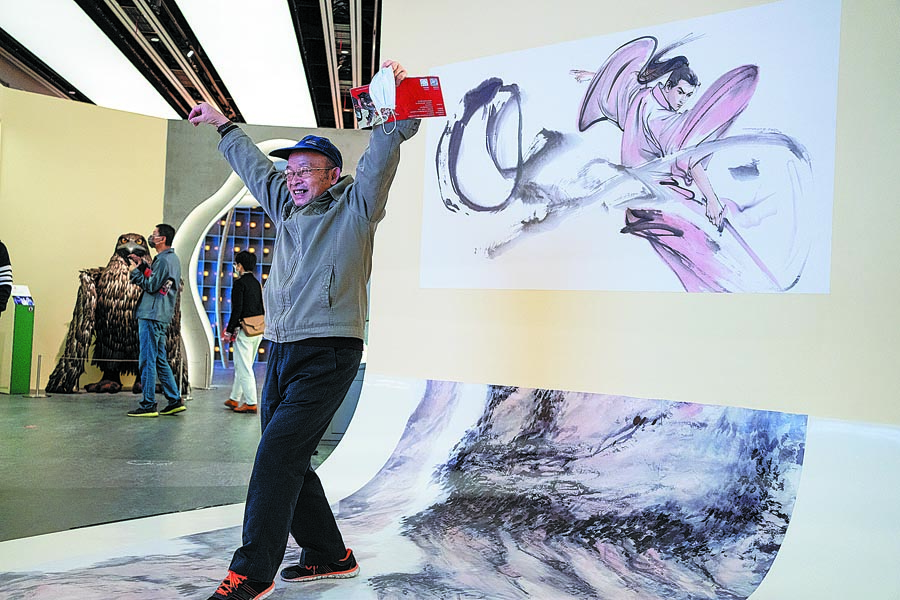

The exhibition also features various interactive areas where visitors can play motion-sensing games and have their photos taken.
Through his wuxia stories, Cha presented different aspects of traditional Chinese customs and culture, from traditional Chinese medicine to cuisine to martial arts and philosophical ideas such as Confucianism, Taoism and Buddhism.
Cha was so familiar with Chinese imperial history that his fictional characters often intermingled with historical figures. His storytelling was so convincing that readers sometimes had trouble telling fact from fiction.
Li Chengzhi was among the first to visit the exhibition on Oct 28. The 50-year-old said he has read all of Cha's books at least three times since borrowing a copy of The Legend of the Condor Heroes from a classmate during his second year in senior middle school.
"Every time I read his books, I get a different feeling," he tells China Daily. "I am sure I would be able to find something new when I read them again."
A history lover, Li was particularly drawn by the historical facts intertwined in the adventurous stories.
"In his earliest novels, the heroes were driven by patriotic passion and the dramatic conflicts between righteousness and wicked betrayal, while in his last novel, The Deer and the Cauldron, the leading character, Wei Xiaobao, is an anti-hero with no noble intentions. He is an eyewitness to the corrupt officialdom, and himself a selfish and trivial man of no honor.
"He overturned the definition of the hero in the wuxia world and brought fantasy closer to modern social reality. Now I understand why he retired from wuxia writing after The Deer and the Cauldron. New writers will probably create new wuxia characters like those in The Legend of the Condor Heroes, but I really doubt there will be a second Wei Xiaobao," he says.